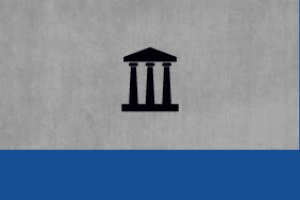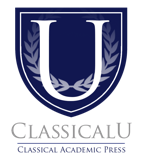In this seminal course, Dr. Kevin Clark and Ravi Scott Jain (authors of The Liberal Arts Tradition) take us through a thoughtful, clear presentation of a paradigm for the tradition of classical Christian education. Clark and Jain emphasize that the 7 liberal arts are “not enough” to capture the classical tradition of education but that the liberal arts exist within the larger context of a tradition that includes piety, gymnastic, music, philosophy, and theology. To restore a vibrant classical, Christian education, we must recover not only the liberal arts but also this wider tradition that enhances the liberal arts, setting them free to enable the mastery of philosophy and theology.
Note: This course is based on the first edition of The Liberal Arts Tradition by Dr. Kevin Clark and Ravi Scott Jain, but still thoroughly communicates their key insights. We also highly recommend reading their revised edition of this text in conjunction with this course.
Dr. Kevin Clark is the president of The Ecclesial Schools Initiative (ESI, esischools.org), an organization he founded in 2019 to help underserved families in Florida receive better access to Christian liberal arts education. Before founding ESI, Kevin served as academic dean of the Geneva School in Winter Park, Florida, where he also taught for fifteen years. Kevin is an Alcuin fellow with The Society for Classical Learning and a member of the teaching faculty in the Master of Arts in Classical Teaching program at The Templeton Honors College. Kevin earned a BA in philosophy from the University of Central Florida, an MA in theological studies from Reformed Theological Seminary, and a DLS from Georgetown University, where he wrote on liberal arts education and interdisciplinary practice.
Kevin is not simply a philosopher, however; he loves stories—especially reading them aloud to his children—and thinks Sarah Mackenzie’s Read-Aloud Revival might save the world. He understands his vocation as a Christian educator to be in service of the Church and the family as they seek to train children in the fear and admonition of the Lord. This means that for Kevin, Christian classical education is not simply a matter of academic preparation; it’s about seeing Christ’s Church flourish as a new generation of men and women bring the wisdom, beauty, and justice of New Creation to bear for God’s glory and the life of the world.
Ravi Scott Jain graduated from Davidson College with a BA and interests in physics, ancient Greek, and international political economy. He worked at various churches, received an MA from Reformed Theological Seminary, and later earned a graduate certificate in mathematics from the University of Central Florida. He began teaching calculus and physics at the Geneva School in 2003 and since that time has developed an integrated double-period class called “The Scientific Revolution.” In this class, the students read primary sources such as Galileo and Newton in order to recapitulate the narrative of discovery while preserving the mathematical and scientific rigor expected of a college-level treatment. He also teaches AP Calculus BC, in which the students strive to discover and demonstrate the “most beautiful theorem in mathematics,” and AP Physics C, in which the students encounter Faraday, Maxwell, and Einstein. Ravi has given more than 100 talks and workshops throughout the country and overseas on topics related to education, theology, mathematics, and science. He has served as a deacon in his church and is an Alcuin fellow. He has two boys, Judah and Xavier. After the duties of the week have been discharged (often by about 8:53 on Saturday night), in the few hours that remain, he enjoys spending time with his wife Kelley Anne, whom he met in Japan, as well as with the rest of his family and friends.

To learn more about earning a certificate for this course, please visit “How do I Obtain a Course Certificate?” on our FAQ page. Our course certificates are valued by classical schools and co-ops worldwide, and you can also be on your way to obtaining a Level 1 certificate with your completion of this course. Teachers certified with either ACSI or ACCS will see continuing education unit (CEU) credits listed on our course certificate for you to submit to either organization (with more information on certification credit here).






